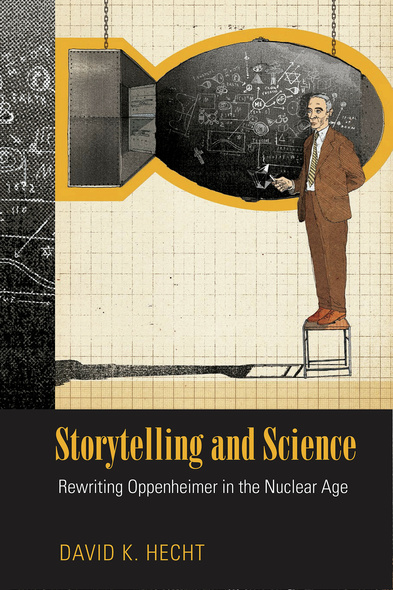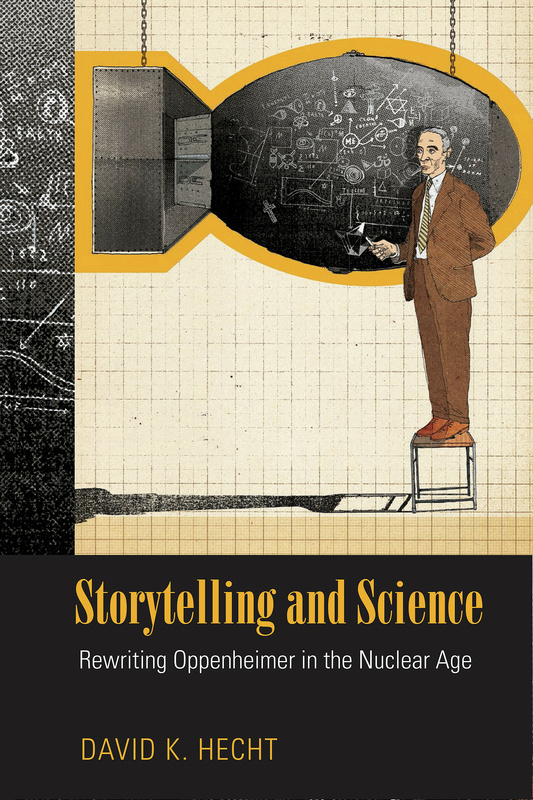Storytelling and Science
Rewriting Oppenheimer in the Nuclear Age
SERIES:
Science/Technology/Culture
University of Massachusetts Press
No single figure embodies Cold War science more than the renowned physicist J. Robert Oppenheimer. Although other scientists may have been more influential in establishing the institutions and policies of the nuclear age, none has loomed larger in the popular imagination than the "father of the atomic bomb." Americans have been drawn to the story of the Manhattan Project Oppenheimer helped lead and riveted by the McCarthy-era politics that caught him in its crosshairs. Journalists and politicians, writers and artists have told Oppenheimer's story in many different ways since he first gained notoriety in 1945. In Storytelling and Science, David K. Hecht examines why they did so, and what they hoped to achieve through their stories.
From the outset, accounts of Oppenheimer's life and work were deployed for multiple ends: to trumpet or denigrate the value of science, to settle old scores or advocate new policies, to register dissent or express anxieties. In these different renditions, Oppenheimer was alternately portrayed as hero and villain, establishment figure and principled outsider, "destroyer of worlds" and humanist critic. Yet beneath the varying details of these stories, Hecht discerns important patterns in the way that audiences interpret, and often misinterpret, news about science. In the end, he argues, we find that science itself has surprisingly little to do with how its truths are assimilated by the public. Instead its meaning is shaped by narrative traditions and myths that frame how we think and write about it.
From the outset, accounts of Oppenheimer's life and work were deployed for multiple ends: to trumpet or denigrate the value of science, to settle old scores or advocate new policies, to register dissent or express anxieties. In these different renditions, Oppenheimer was alternately portrayed as hero and villain, establishment figure and principled outsider, "destroyer of worlds" and humanist critic. Yet beneath the varying details of these stories, Hecht discerns important patterns in the way that audiences interpret, and often misinterpret, news about science. In the end, he argues, we find that science itself has surprisingly little to do with how its truths are assimilated by the public. Instead its meaning is shaped by narrative traditions and myths that frame how we think and write about it.
An original contribution to its field that opens the way to similar studies of the public images of other scientists and their science. Einstein and relativity theory are obvious candidates for this kind of analysis, as are popular accounts of such scientific notions as the 'God particle' and the Big Bang.'—David C. Cassidy, author of J. Robert Oppenheimer and the American Century
'This book will appeal to readers interested in the scientific and political climate during the period that started immediately after WWII. Chapter notes make it a useful research tool. Recommended.'—Choice
'Storytelling and Science makes an original and compelling argument by shifting the focus from Oppenheimer to stories about Oppenheimer. . . . Storytelling and Science persuasively shows that accounts of Oppenheimer ultimately reveal less about their purported subject and much more about the authors, the times in which they wrote, and the subtle power of biographical narrative.'—Rebecca Slayton, Journal of American History
'Highly readable and well-researched . . . Storytelling and Science certainly answers the central question of what the stories of an individual scientist's life can tell us about public attitudes towards science and modern life.'—Biography
'How can a researcher propose new perspectives on a remarkable career? David K. Hecht ingeniously looks at how science has integrated the many portraits of J. Robert Oppenheimer over the past seven decades. Hecht shows how Oppenheimer's career illustrates the ambivalence with which citizens grapple as they recognize that life has been made both much more tolerable and rich, and much more dangerous and fragile by science.'—Twentieth Century History Review
David K. Hecht is assistant professor of history at Bowdoin College.






